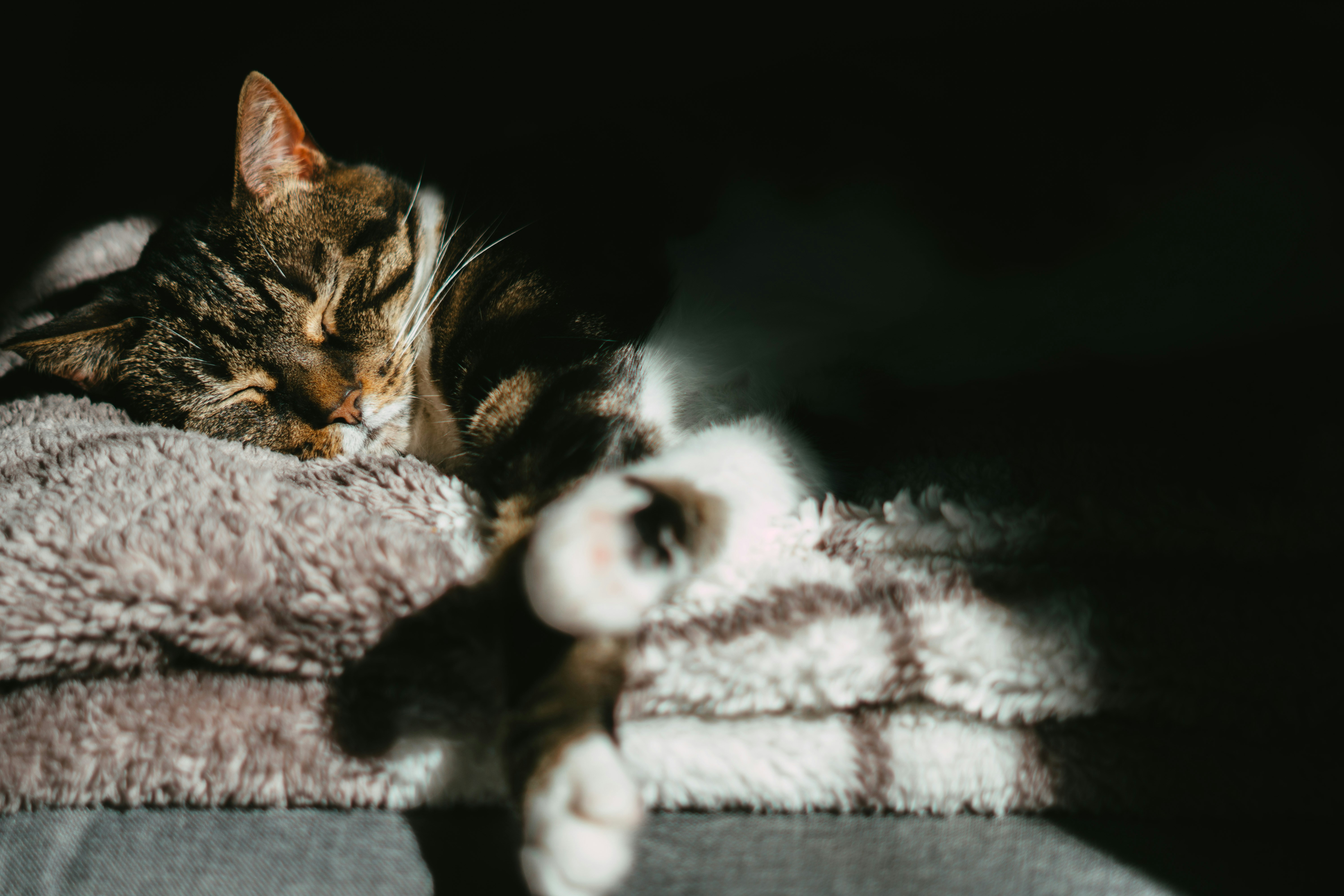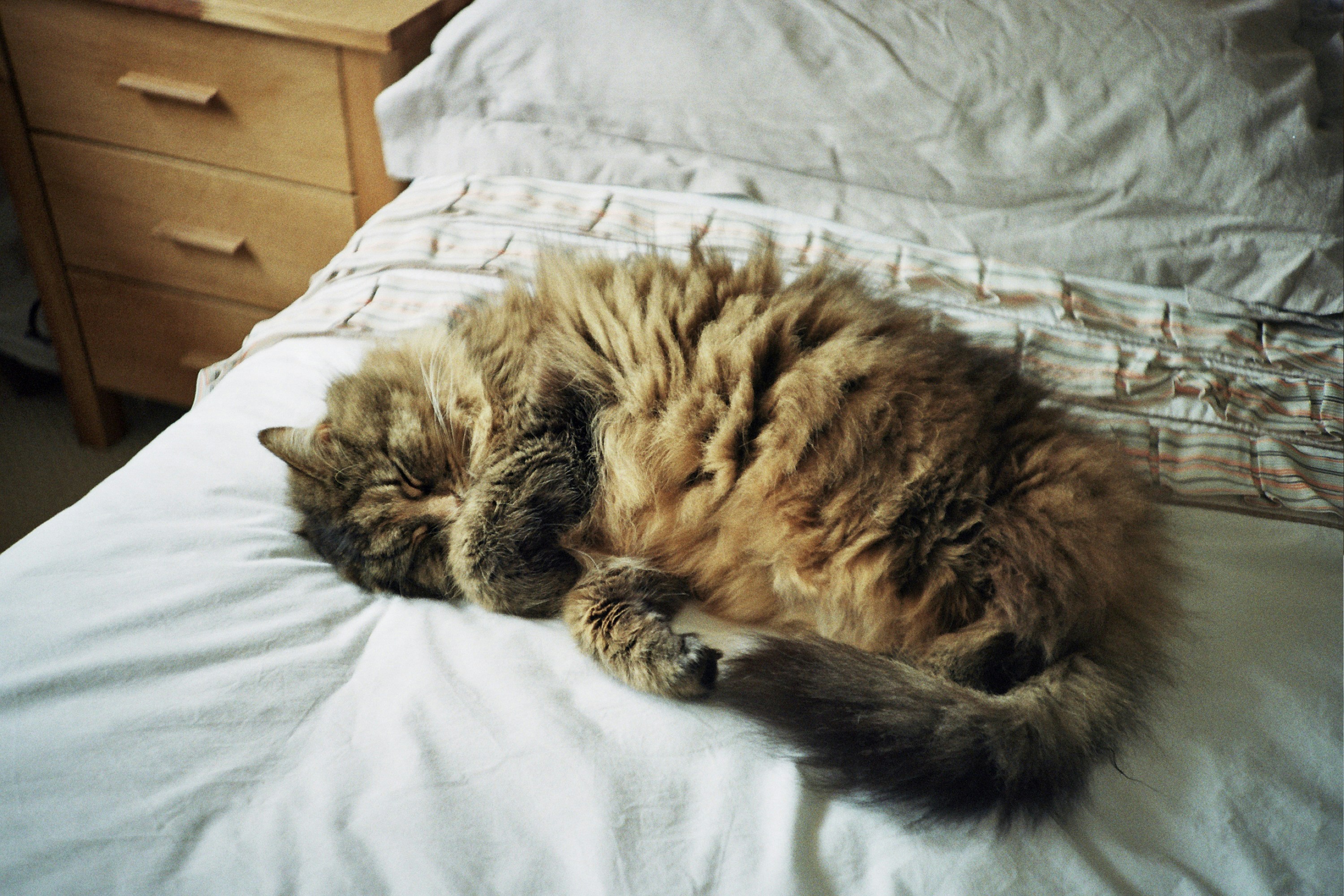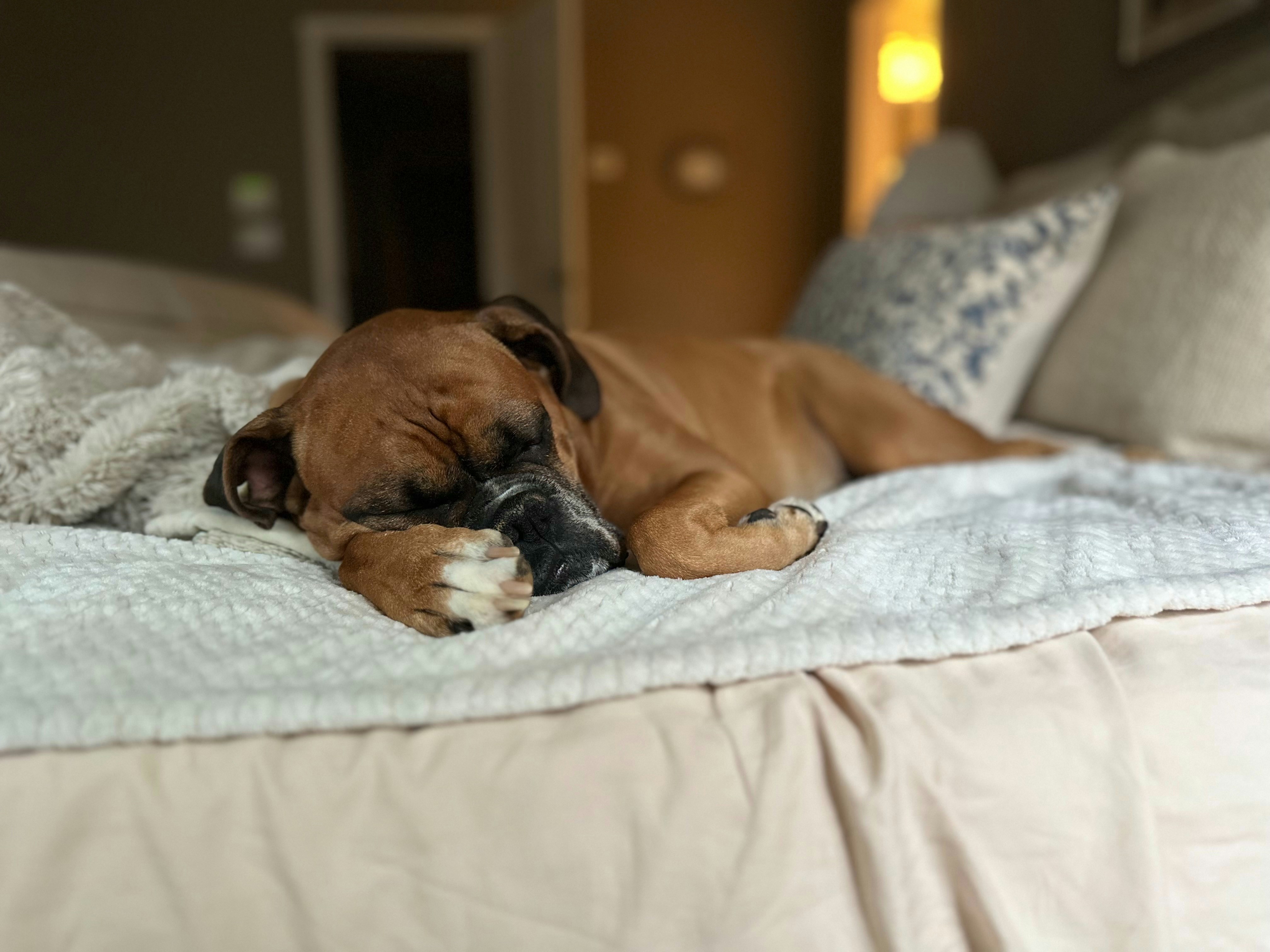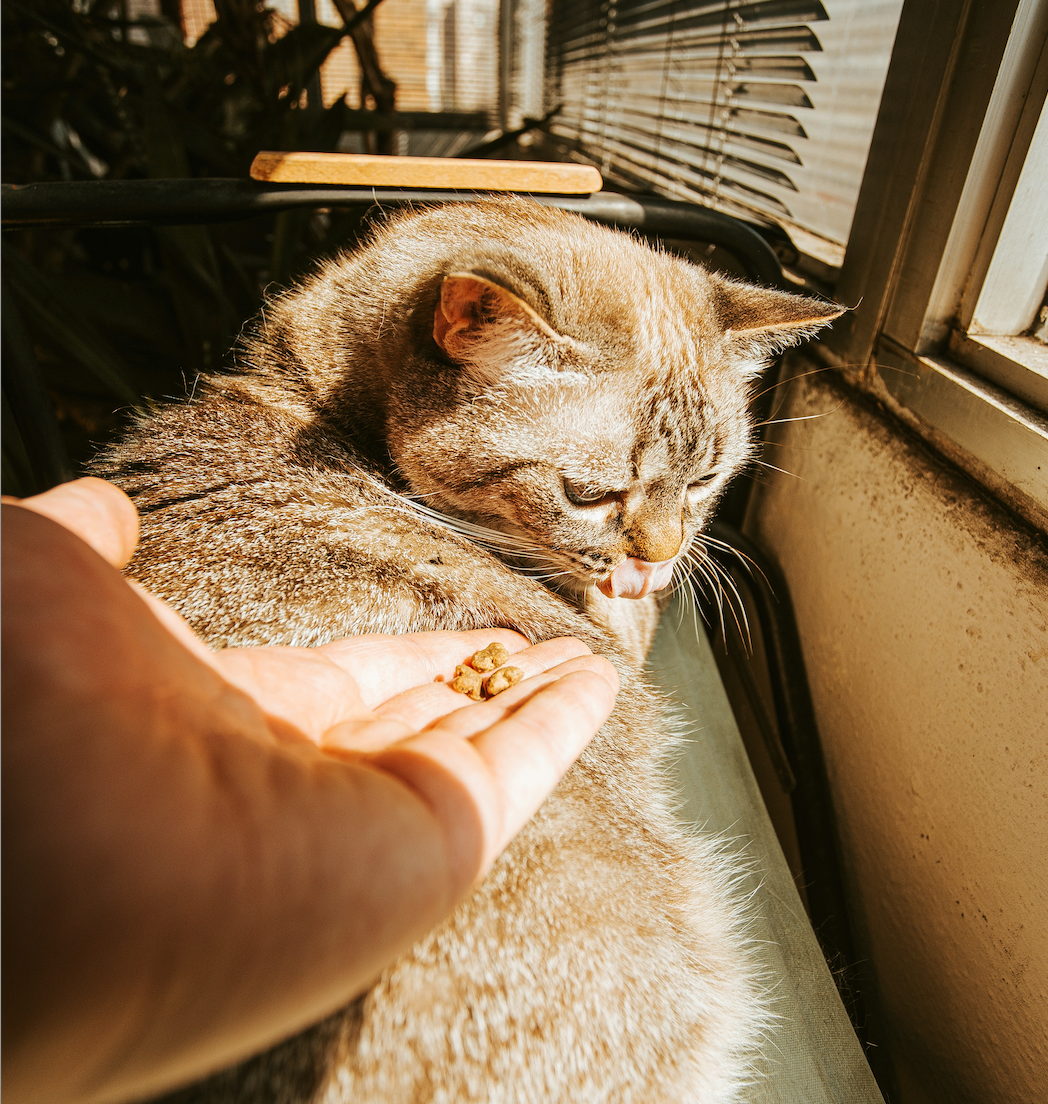As your cat grows older, their needs change. They may sleep more, move slower, or face new health challenges. Comfort care helps them stay supported and content in their later years. With small adjustments, you can reduce pain, protect mobility, and support their physical and emotional needs. This guide explains key steps to keep senior cats safe, well, and loved.
Managing pain in older cats
Arthritis and stiff joints are very common in senior cats. Watch for signs like hesitation when jumping, stiffness after rest, or staying in one spot longer than usual. Speak with your vet about safe pain relief, supplements, or gentle therapies that can improve comfort.
Creating a safe and supportive home
- Provide soft, warm bedding for sore joints.
- Keep their beds warm with small electric blankets.
- Keep water, food, and litter trays within easy reach on the ground.
- Place resting spots low to the ground for easy access.
- Place steps or ramps to get on the couch or bed.
Nutrition for senior cats
Older cats benefit from diets suited to their age or medical needs. Some foods support kidneys, others help with joints or weight balance. Ask your vet if a senior-specific or prescription diet is right for your cat. There are also well-researched supplements that may support health—your vet can guide you.
Hydration and daily comfort
Cats with certain illnesses such as kidney disease, diabetes and hyperthyroidism often experience dehydration. Encourage hydration by:
- Offering wet food.
- Using water fountains.
- Placing bowls in several rooms.
Many elderly cats struggle with inappropriate elimination, which can be very challenging to manage. Placing multiple litter boxes in easily accessible, quiet areas around the home can encourage proper use.
Supporting emotional wellbeing
Senior cats may seek more affection or prefer quiet time. Gentle play, grooming, and calm companionship help them feel safe. A steady routine and quiet spaces reduce stress and keep them settled.
Routine veterinary care
Regular vet visits are vital for older cats. Early management of the common diseases like kidney disease, dental disease, or hyperthyroidism will extend the quality and quantity of your cats. Ongoing assessments also reassure families, and help to make plans as the disease process progresses. Many vets recommend senior check-ups every six months.
Exploring supportive therapies
Some families use therapies like acupuncture, massage, or physiotherapy. These may help with mobility and comfort. Always discuss new options with your vet before starting.
Adapting to changing needs
Senior cats often sleep more, jump less, or prefer quiet environment. Adjust routines gently and give them extra patience. Flexibility helps them stay comfortable and happy at home.
Supporting your senior cat with love
Comfort care means dignity, respect, and kindness. By noticing changes and responding with compassion, you make your cat’s later years peaceful and full of love. If you are unsure about their comfort, a quality of life assessment for your pet can guide changes at home. When care is no longer enough, in home cat euthanasia offers a gentle farewell. For aftercare, families can choose respectful pet cremation/aquamation options.
FAQ
Q: How often should senior cats visit the vet?
Every six months is ideal. Regular checks help detect kidney, thyroid, or dental issues early, keeping your cat comfortable and healthy.
Q: What can I do to help my cat with arthritis?
Provide soft bedding, ramps, and low litter boxes. Gentle pain relief or supplements can help—your vet will recommend safe options.
Q: Why is my senior cat restless at night?
Night-time confusion or anxiety is common in older cats. Keep lights low, maintain routine, and ask your vet about calming aids if needed.
Q: How do I make feeding easier for my older cat?
Use shallow bowls at comfortable heights and offer smaller, frequent meals. Wet food supports hydration and easier eating.
Q: When should I consider a quality of life assessment?
If your cat’s comfort or appetite begins to decline, a quality of life assessment helps clarify what support or changes will improve their wellbeing.







